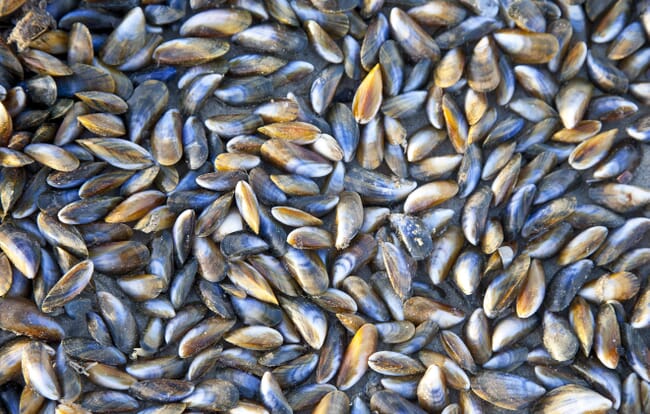
A new study has revealed worrying levels of fibreglass accumulation in oysters and mussels. This marks the first-time fibreglass or glass reinforced plastic (GRP) particles have been found entering the human food chain, raising urgent environmental and human health concerns.
The study - a product of collaboration between the universities of Portsmouth and Brighton - showed that GRP, which is used extensively in boat manufacturing, has potential to contaminate coastal waters as it breaks down, and may have strong implications for coastal marine life. This material, once thought to be durable and beneficial, now raises human health concerns, as fibreglass and GRP found in shellfish may be passed on to humans.
The GRP particles have been detected in the soft tissues of oysters and mussels collected near an active boatyard in Chichester Harbour, a popular sailing destination in South England. Using a technique known as micro-Raman spectroscopy, researchers found up to 11,220 fibreglass particles per kilogram in oysters and 2,740 particles per kilogram in mussels.
“Our findings show a disturbing level of GRP contamination in marine life. This study is the first of its kind to document such extensive contamination in natural bivalve populations. It’s a stark reminder of the hidden dangers in our environment,” said Dr Corina Ciocan, a University of Brighton marine biologist, in a press release.
Whilst boasting impressive durability, fibreglass can be difficult to properly dispose of and, as it degrades, small particles of the material can contaminate the marine environment in a process similar to micro-plastic pollution.
Bivalves, being stationary filter feeders, are highly susceptible to accumulating fibreglass particles, which can severely impact their health. The ingestion of GRP can interfere with their digestive systems, leading to physiological stress and even death. This not only affects marine life but could also have significant implications for human health, given that these bivalves are often harvested for human consumption.
“It’s a global issue, particularly for island nations with limited landfill space. Efforts are being made to find viable disposal solutions, but more needs to be done to prevent at-sea dumping and onshore burning,” said Fay Couceiro, a researcher from the University of Portsmouth.
The consequences of this contamination are not yet fully understood, but the potential for widespread ecological impact is significant. The researchers advocate for further investigation to understand the potential transfer up the food chain and the implications for human health.
“We’re just starting to understand the extent of fibreglass contamination. Our study is the first to show this level of contamination in natural bivalve populations,” said Couceiro.




